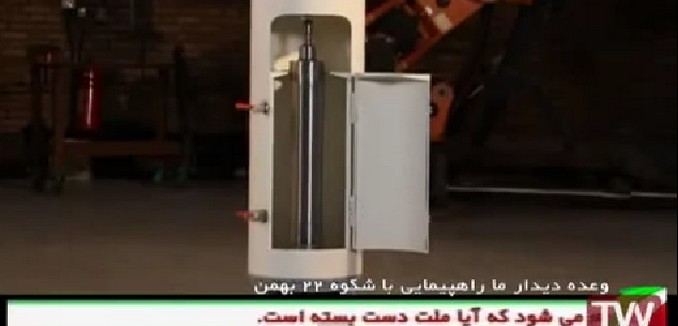The question of whether to trust Iran’s claims that its nuclear program is purely for peaceful purposes can be answered by a single issue: “Iran’s failure to deliver on multiple pledges to answer questions about its suspected research on nuclear warheads,” a staff editorial in The Washington Post asserted on Saturday.
The editorial recounts how both in 2007 and 2013, Iran agreed to clear up any questions about possible military dimensions of its past nuclear research, but “it then stonewalled inspectors, refusing to answer questions or permit access to sites.” After Iran refused to allow inspectors from the International Atomic Energy Agency (IAEA) to access its Parchin military base, where nuclear weapons research is suspected to have taken place, “the IAEA published an extensive report detailing what it already knew about the illicit bomb work and listed 12 outstanding issues.” The government of President Hassan Rouhani agreed to address these outstanding issues.
However, the Post documents that the promised cooperation was again not forthcoming.
But instead of implementing the plan, the regime went back to stonewalling. IAEA chief Yukiya Amano told The Post’s Steven Mufson this week that Iran had provided information on just one of the 12 issues. On two others, Mr. Amano said, it had given “very limited” responses, and the remaining nine had not been addressed at all.
An appropriate response to this blatant violation of agreements would be to insist that Iran complete the IAEA work plan before any long-term accord is signed or any further sanctions lifted. Inspectors need their questions answered so that they will be able to determine later whether Iran has violated the controls on its nuclear research expected to be part of a deal. Furthermore, it is vital to establish that Tehran will deliver on its commitments and that it will be held accountable if it does not.
The upshot of making a deal now, when that would allow Iran to push its obligations further into the future, is “that Iran will have some sanctions lifted before it complies with a commitment it first made eight years ago.”
The editorial concludes:
The question this raises was articulated months ago in congressional testimony by nuclear weapons expert David Albright: “If Iran is able to successfully evade addressing the IAEA’s concerns now, when biting sanctions are in place, why would it address them later when these sanctions are lifted?” In its rush to complete a deal, the Obama administration appears eager to ignore the likely answer.
Earlier this month, an editorial in the Post asserted that Israeli Prime Minister Benjamin Netanyahu raised numerous legitimate questions about the nuclear negotiations that the administration should address. A subsequent editorial asked whether, in its desire to reach a nuclear deal with Iran, the administration was turning a blind eye towards increased Iranian aggression in the Middle East.
Although they initially supported the nuclear negotiations with Iran in November 2013, the editors of The Washington Post have recently called for greater pressure to be brought against Iran and has criticized the administration for ignoring the bipartisan Congressional objections to the emerging deal.
[Photo: ali javid / YouTube ]




